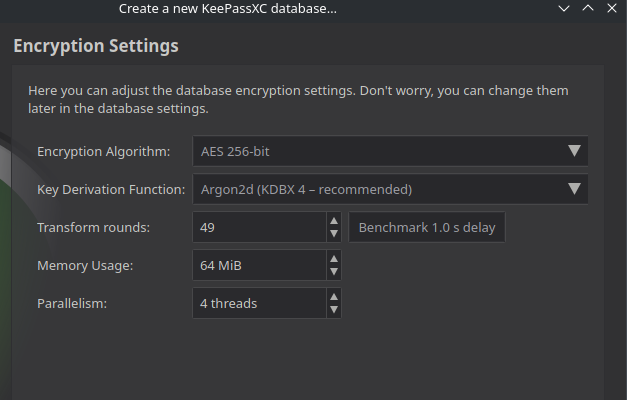I apologize in advance if this is the wrong community for this post. If so, please point me in the right direction of where I should post this.
I'm thinking of trying out KeePassXC, and, when creating a new database, I came across the following settings:

Some of this is somewhat self explanatory to me ("Encryption Algorithm", and "Key Derivation Function"), but some of it not so much -- namely, "Transform Rounds" (I'm assuming that "Memory Usage", and "Parallelism" are more specific, not to the database on the whole, but, instead, to the decryption itself within the app, or, maybe, even just for the benchmark). What exactly is "Transform Rounds"? Does it mean that the passwords are encrypted over, and over again, in attempt to protect against dictionary attacks? I haven't been able to find any concrete information.
Forums are an invaluable source of information for countless purposes. Even extremely old forum posts can be a life-saver.